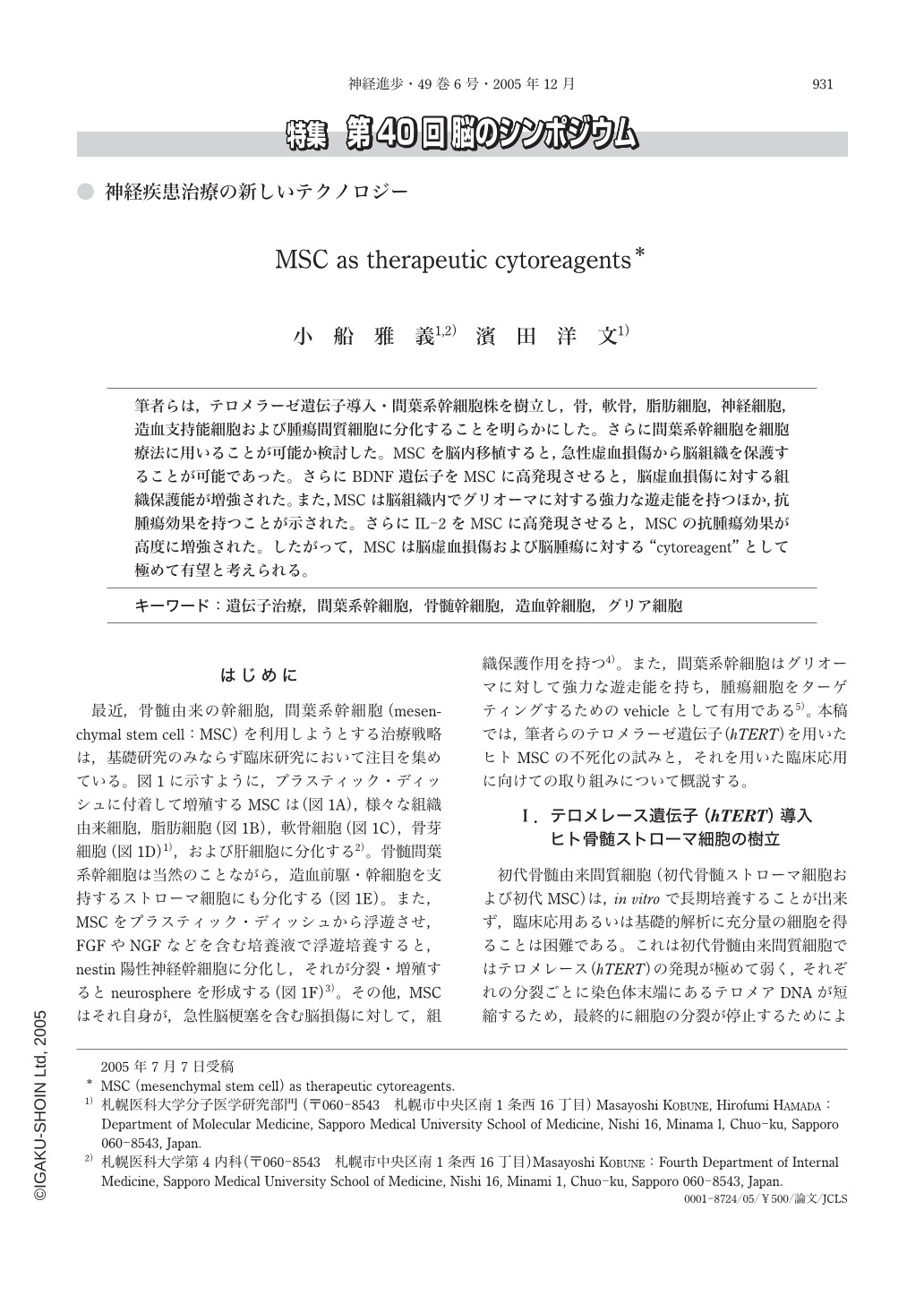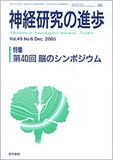Japanese
English
- 有料閲覧
- Abstract 文献概要
- 1ページ目 Look Inside
筆者らは,テロメラーゼ遺伝子導入・間葉系幹細胞株を樹立し,骨,軟骨,脂肪細胞,神経細胞,造血支持能細胞および腫瘍間質細胞に分化することを明らかにした。さらに間葉系幹細胞を細胞療法に用いることが可能か検討した。MSCを脳内移植すると,急性虚血損傷から脳組織を保護することが可能であった。さらにBDNF遺伝子をMSCに高発現させると,脳虚血損傷に対する組織保護能が増強された。また,MSCは脳組織内でグリオーマに対する強力な遊走能を持つほか,抗腫瘍効果を持つことが示された。さらにIL-2をMSCに高発現させると,MSCの抗腫瘍効果が高度に増強された。したがって,MSCは脳虚血損傷および脳腫瘍に対する“cytoreagent”として極めて有望と考えられる。
We developed human mesenchymal stem cell(MSC)lines that could differentiate into various tissue cells including bone, neural cells, bone marrow(BM)stromal cells supporting the growth of HSC, and so-called“tumor stromal cells”mixing with tumor cells. We investigated the applicability of MSC as therapeutic cell transplanting reagents(cytoreagents). Telomerized human BM derived stromal cells exhibited prolonged lifespan and supported the growth of hematopoietic clonogenic cells. Gene-modified MSC are useful as therapeutic tools for brain tissue damage(e.g., brain infarction)and malignant brain neoplasms. MSC transplantation protected the brain tissue from acute ischemic damage in the midcerebral artery occlusion(MCAO)animal model. Brain-derived neurotrophic factor(BDNF)-gene transduction further enhanced the protective efficacy against the ischemic damage. MSC possessed excellent migratory ability and exerted inhibitory effects on the proliferation of glioma cells. Gene-modification of MSC with therapeutic cytokines clearly augmented the antitumor effect and prolonged the survival of tumor-bearing animals. Gene therapy employing MSC as a tissue-protecting and targeting cytoreagent would be a promising approach.

Copyright © 2005, Igaku-Shoin Ltd. All rights reserved.


